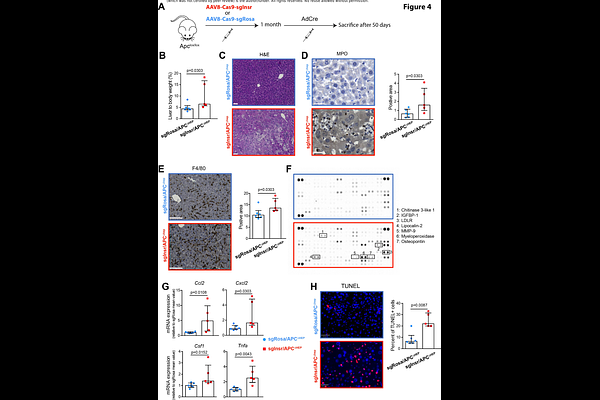Hepatocyte expression of fetal insulin receptor isoform contributes to the promotion of liver cancer through non-cell autonomous mechanisms

Hepatocyte expression of fetal insulin receptor isoform contributes to the promotion of liver cancer through non-cell autonomous mechanisms
Leandre, F.; Iddir, A.; Godart, C.; Lagoutte, I.; Caldiero, A.; Souid, S.; Pinto, S.; Augustin, J.; Bou Malham, V.; Alves, A.; Aubry, R.; Imbeaud, S.; Zucman-Rossi, J.; Colnot, S.; Gougelet, A.; Desbois-Mouthon, C.
AbstractThe insulin receptor (INSR) exists in two isoforms, INSR-A and INSR-B, resulting from alternative splicing of the INSR pre-mRNA. INSR-B mediates the metabolic and mitogenic effects of insulin in the adult liver, while INSR-A is expressed during development. Recently, INSR-A has been detected in pathological murine and human livers. Here, we develop an in vivo CRISPR/Cas9 strategy to assess the impact of INSR-A on mouse liver homeostasis and susceptibility to carcinogenesis. We find that INSR- A expression in hepatocytes leads to the spontaneous development of liver tumours and also increases tumour initiation in a context of b-catenin-driven liver carcinogenesis. Mechanistically, this is attributed to the higher intrinsic capacity of INSR-A expressing hepatocytes to enter apoptosis, rendering the microenvironment more inflammatory, thus making way for the proliferation of preneoplastic cells. Collectively, our data highlight a novel function for INSR-A in promoting liver cancer via non-cell autonomous mechanisms.